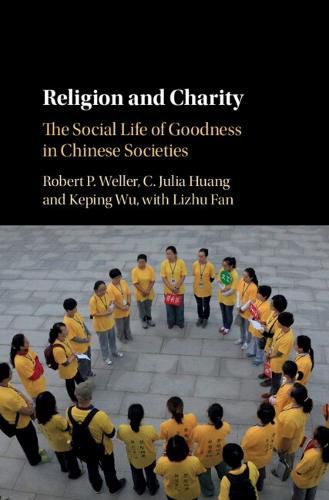Readings Newsletter
Become a Readings Member to make your shopping experience even easier.
Sign in or sign up for free!
You’re not far away from qualifying for FREE standard shipping within Australia
You’ve qualified for FREE standard shipping within Australia
The cart is loading…






Free markets alone do not work effectively to solve certain kinds of human problems, such as education, old age care, or disaster relief. Nor have markets ever been the sole solution to the psychological challenges of death, suffering, or injustice. Instead, we find a major role for the non-market institutions of society - the family, the state, and social institutions. The first in-depth anthropological study of charities in contemporary Chinese societies, this book focuses on the unique ways that religious groups have helped to solve the problems of social well-being. Using comparative case studies in China, Taiwan and Malaysia during the 1980s and onwards, it identifies new forms of religious philanthropy as well as new ideas of social ‘good’, including different forms of political merit-making, new forms of civic selfhood, and the rise of innovative social forms, including increased leadership by women. The book finally argues that the spread of these ideas is an incomplete process, with many alternative notions of goodness continuing to be influential.
$9.00 standard shipping within Australia
FREE standard shipping within Australia for orders over $100.00
Express & International shipping calculated at checkout
Free markets alone do not work effectively to solve certain kinds of human problems, such as education, old age care, or disaster relief. Nor have markets ever been the sole solution to the psychological challenges of death, suffering, or injustice. Instead, we find a major role for the non-market institutions of society - the family, the state, and social institutions. The first in-depth anthropological study of charities in contemporary Chinese societies, this book focuses on the unique ways that religious groups have helped to solve the problems of social well-being. Using comparative case studies in China, Taiwan and Malaysia during the 1980s and onwards, it identifies new forms of religious philanthropy as well as new ideas of social ‘good’, including different forms of political merit-making, new forms of civic selfhood, and the rise of innovative social forms, including increased leadership by women. The book finally argues that the spread of these ideas is an incomplete process, with many alternative notions of goodness continuing to be influential.